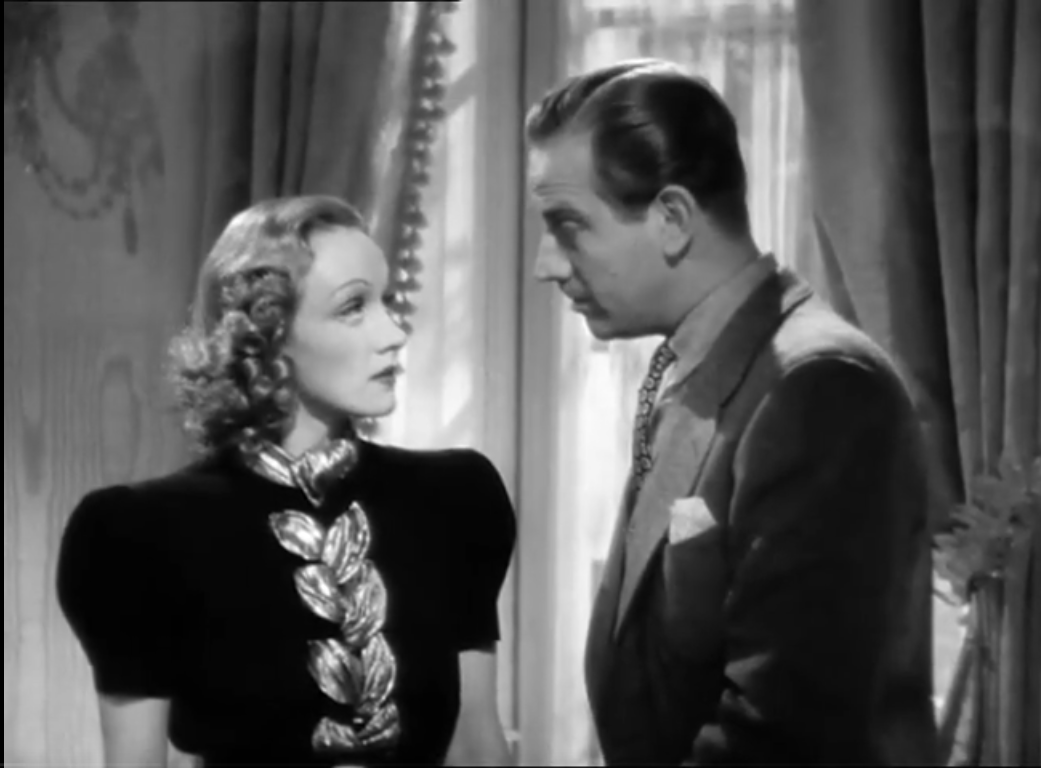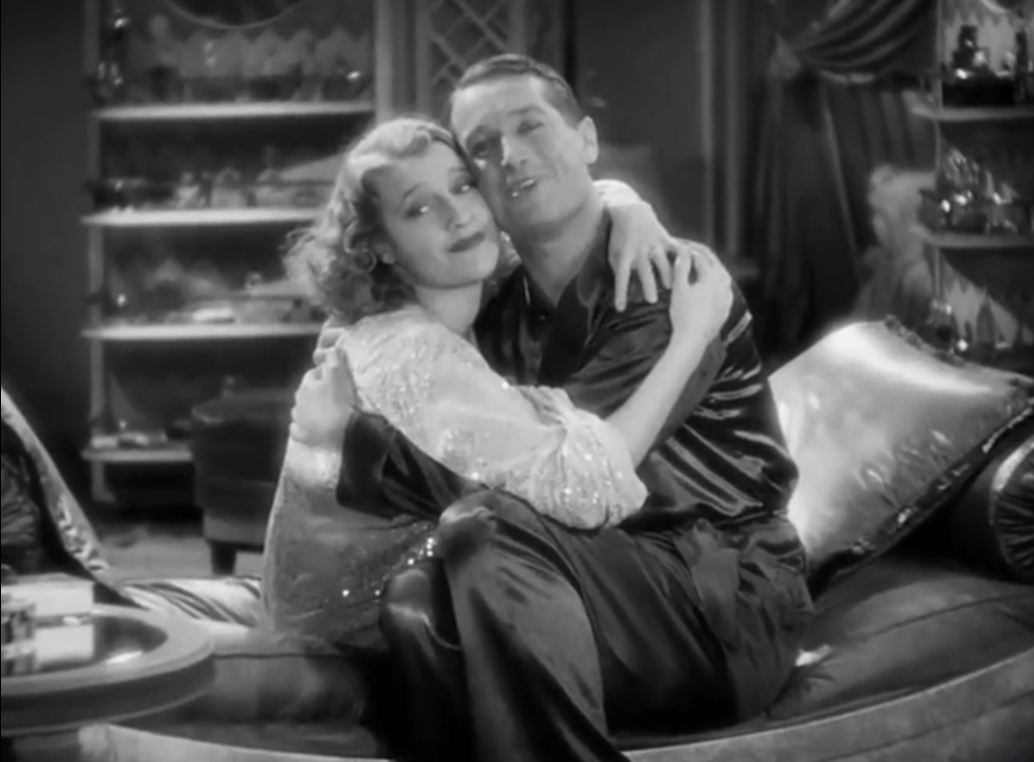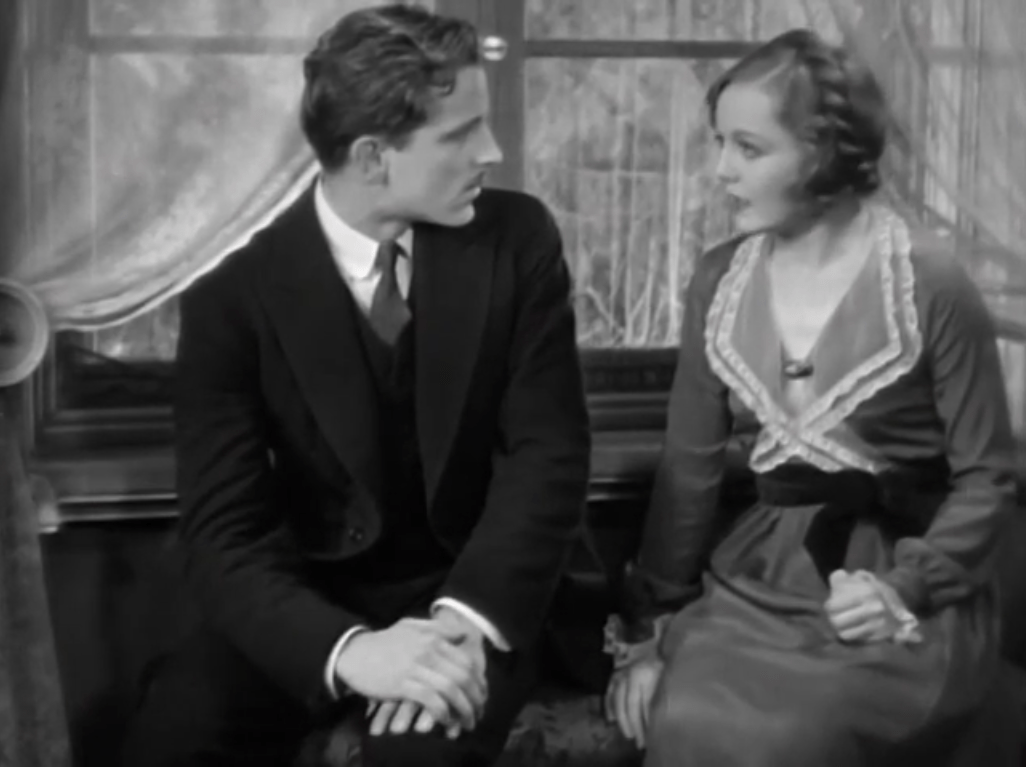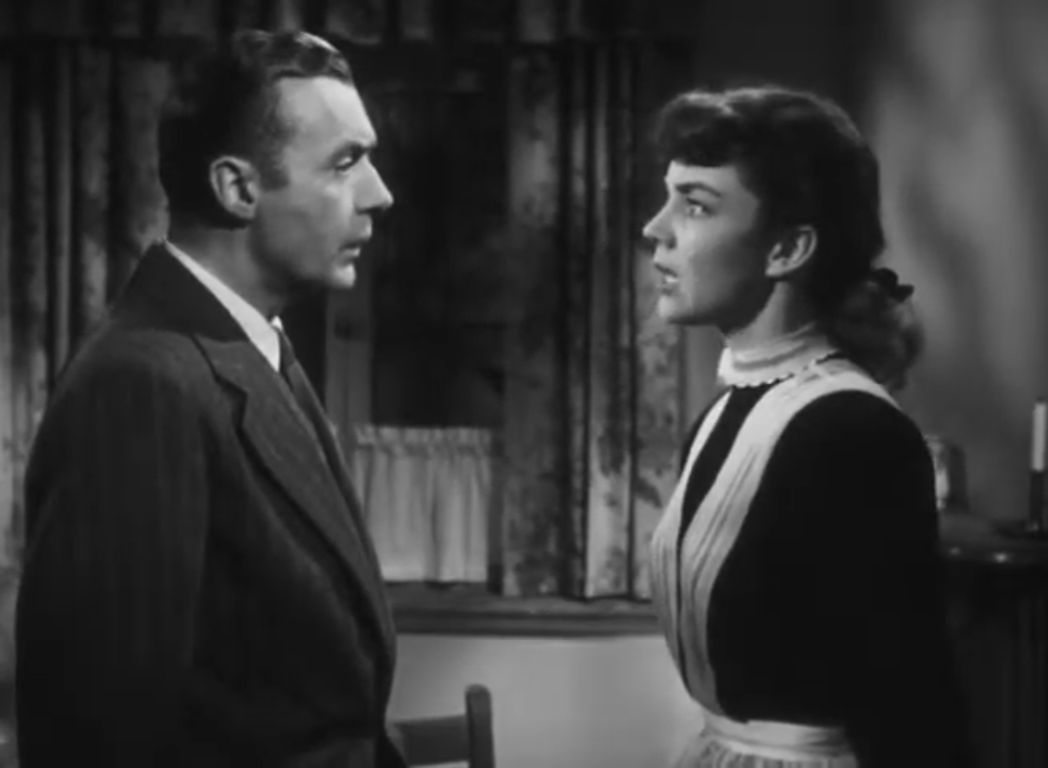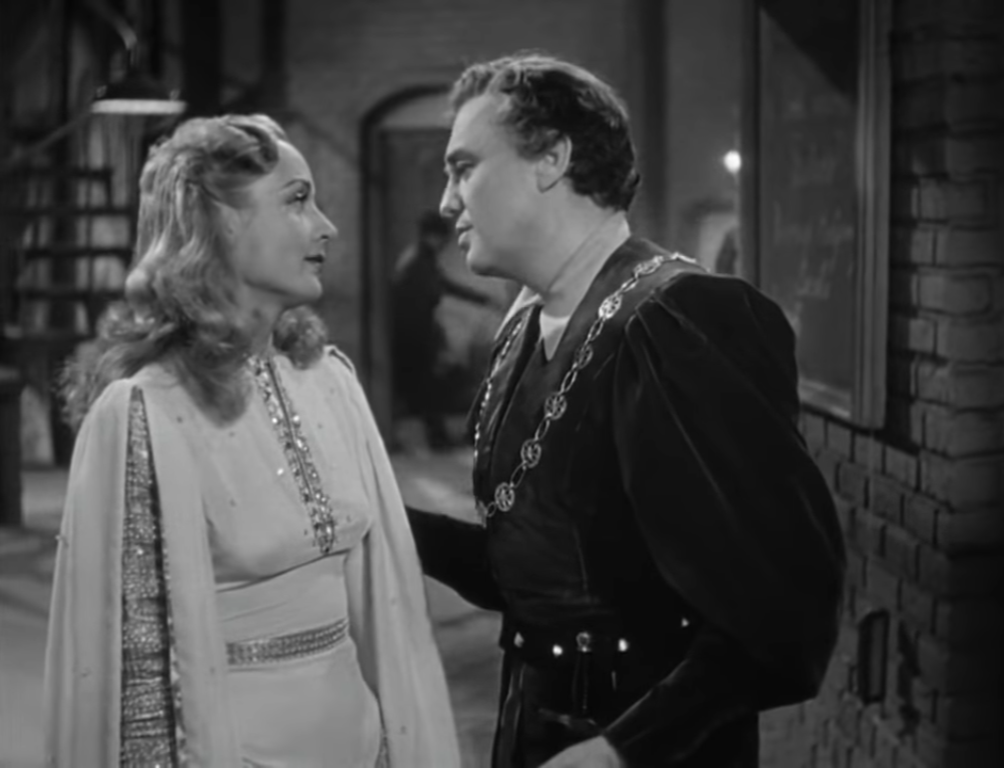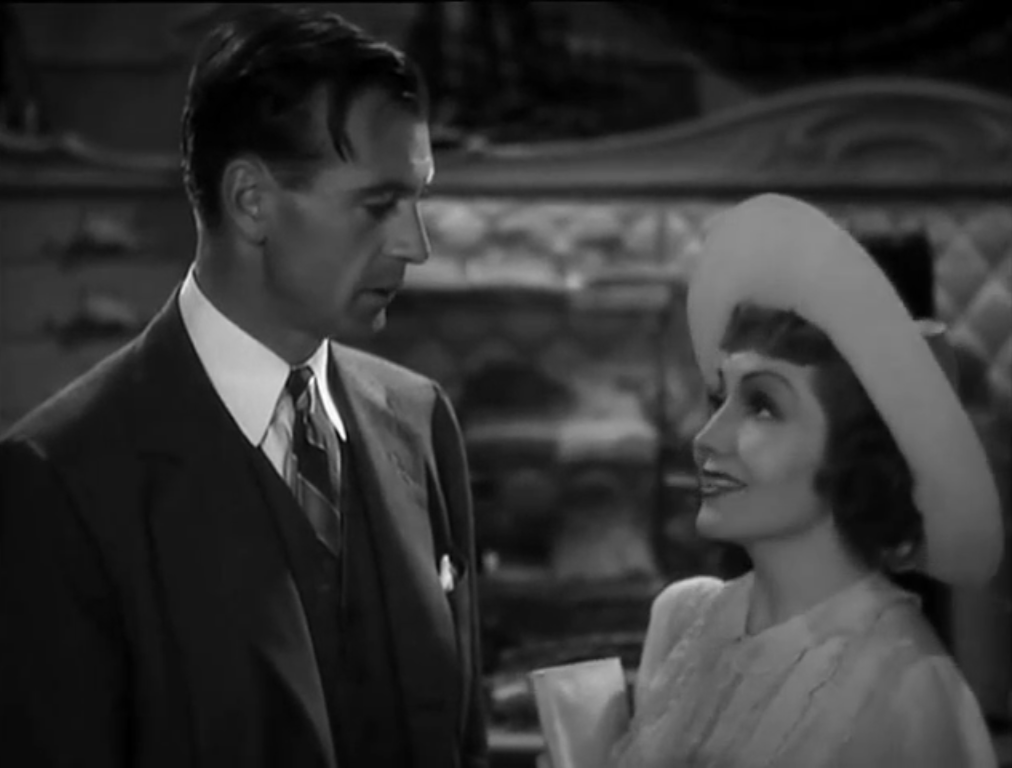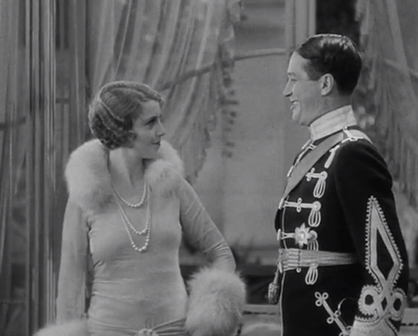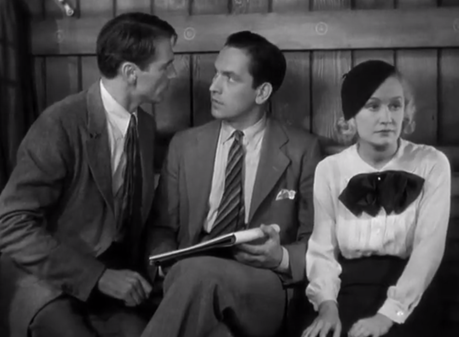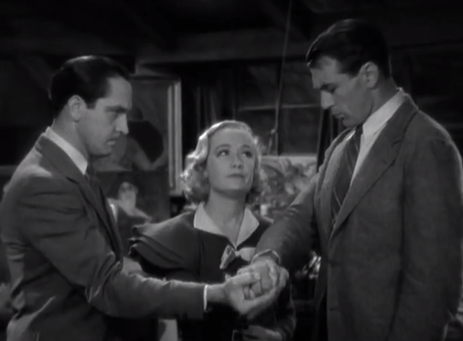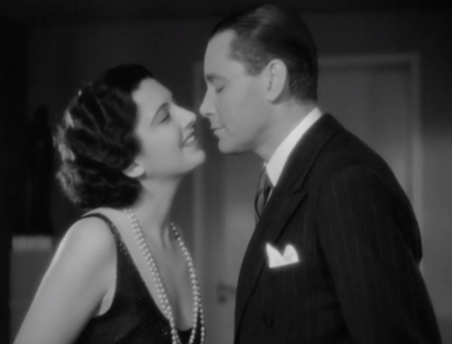For those familiar with Trouble in Paradise, Angel has a sublime outside-the-window tracking shot in its own right to bring us flush into the world of Parisian soirees. Thusly, we become acquainted with Russian Grand Duchess Anna (Laura Hope Crews), who facilitates meetings between men and women.
It’s possible to barely catch the subtext here. What’s apparent is by the sheer serendipity of cinema Marlene Dietrich and Melvyn Douglas wind up in a drawing-room together. Dietrich feels particularly laid back. Normally, she’s beautifully aloof; here it’s a bit different because she’s not looking to maintain an aura at all. It makes her all the more genial.
Joseph Von Sternberg always cast and projected Dietrich as a screen goddess. Working with Lubitsch, Dietrich feels like a far more relatable human being albeit a beautiful, refined one. She doesn’t totally overwhelm with her sensuality remaining mostly reserved.
Tony Halton (Douglas) is in town for the day and is looking for a time. She offers up the Mona Lisa, the Eiffel Tower (that big steel thing sticking up in the air), and Notre Dame. No offense to “The City of Light,” but none of them pique his interest. The lady in front of his eyes is far more incandescent. She’s a bona fide angel.
It’s true there’s something fresh and appealing about their interaction. They don’t know one another’s names nor does she bother to correct the mistaken identity, and it doesn’t matter. In fact, it even augments what they have because they are so fascinated by one another. It means a dinner invitation and spending the night together. This could be the movie right there.
Then, Sir Frederick Barker (Herbert Marshall) is shown aboard a screeching steam engine 20 minutes into the picture. We almost forgot about him, and we take a total about-face toward events that remain interrelated. Before we ever meet the man, we learn he must be a gentleman of some renown because he’s all over the papers.
He is served faithfully by his fastidious manservant (Edward Everett Horton), Graham, who has the ear of a very powerful man. He’s seen his fair share of diplomatic affairs: dinners, white ties, and tailcoats. They make him quick to judge the merits of international diplomats. Because his master is one of the finest, single-handedly standing up to 21 countries in The League of Nations (not including the U.S.).
Barker returns home late one evening to be reunited with his wife Maria (Dietrich). It’s obvious they have affection for one another — they care deeply about their marriage — but before she fell for another man, there was already a third party in their relationship: his work.
To grasp at obvious metaphors, there’s a tinge of Casablanca married with a kind of Melvyn Douglas Ninotchka romance and the stuffy propriety of Cluny Brown. Take, for instance, the mélange of servants headlined exquisitely by Horton and Ernest Cossart.
In perfect Lubitschian fashion, a dinner is viewed from the kitchen’s point of view as they perceptively observe two of their dinner guests are out of sorts. They didn’t touch their food. They weren’t hungry. Although it’s never said outright, Lubitsch allows us to put two and two together. One can only surmise it’s due to lovesickness.
Because there is only one way this movie can get more complicated and more painful. The men must meet. However, far from being antagonistic, they are old friends meeting on a whim. Once upon a time, they shared a French girl all the way back during the war years when they were both still young. Whether they know it or not, they also share another girl: Angel. They have no idea the beehive that’s been kicked. Lubitsch only gives that to us. We are resigned to watching the outcomes.
The hourglass structure of the movie means we must end where we began. We know time is running out. We are back in Paris, back with the Duchess, and she performs her narrative duties a bit like a maestro. Unwittingly or not, she has all the main players stashed away in different drawing rooms. It’s inevitable that they find each other. The situation calls for it. There is no other possible resolution.
In the olden days, you have a sense this film would have been lithe and effervescent as only Lubtisch could offer up. Standing before us are all his penchants for drawing rooms, the affluent classes, and their servants.
But what sets Angel apart is the tone and the profound solemnity Lubitsch often brings to the proceedings. The melancholy of the central love triangle is unmistakable even in the final minutes of the film. In this case, it’s difficult to totally dismiss the extravagance. Still, we’ve come to understand these people, both their passions and their nobility. Because Lubitsch’s films somehow compel me the most when they grab hold of such feelings, where the emotions cut far deeper than the surface ironies.
As far as Dietrich’s concerned, it might be one of her greatest performances. In the place of ostentatious allure, there stands a quiet dignity comfortable with silence. The whole movie is made in such a mode where these interludes develop the longing. In a quiet encapsulation, husband and wife walk out of the giant estate both together and apart. Their marriage still standing but on the verge of dissolution. It’s not so much a paradox as it is an indication of the tenuous nature of their lives moving forward.
3.5/5 Stars

